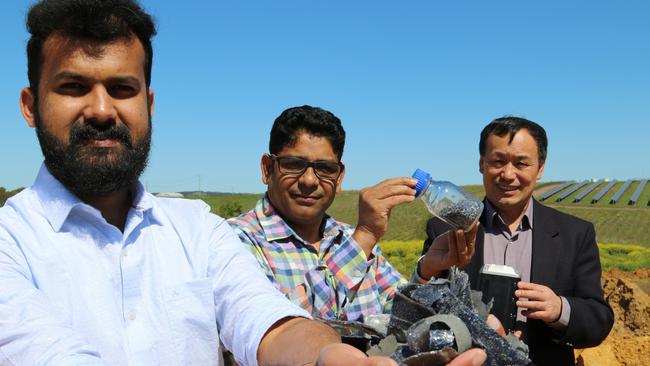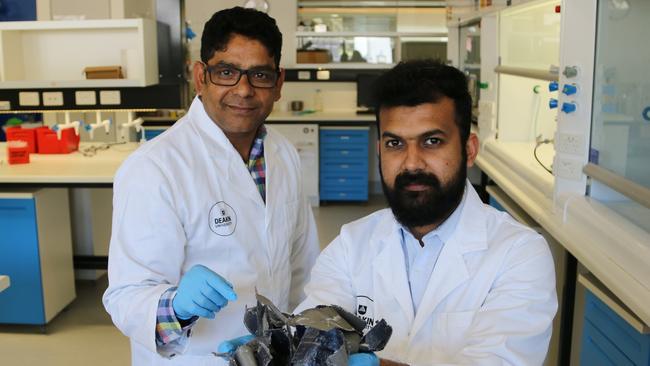Deakin Uni scientists develop game-changing process for old solar panels with big profits and big benefits for planet
Deakin researchers have found a way to turn old into gold, for both profits and planet.

Geelong
Don't miss out on the headlines from Geelong. Followed categories will be added to My News.
Deakin University scientists have found a game-changing way to turn old solar panels into big profits with a big benefit for the planet.
Researchers from Deakin’sInstitute for Frontier Materials (IFM) at Waurn Ponds have successfully tested a new process to extract silicon from used panels and convert it into a sought-after nano material worth more than $45,000 a kilogram. Regular silicon is worth about $650 a kilogram.
The breakthrough looms as key to tackling the clean energy transition, both in reducing waste – more than 100,000 tons of used solar panels are estimated to enter Australia’s waste stream by 2035 – and helping build better batteries.

In a critical breakthrough in energy storage technology, the recovered nano-silicon can be mixed with graphite to develop a new type of battery anode, shown to increase lithium-ion battery capacity by a factor of 10.
The IFM team estimates their technique could generate more than $20b in material recovery if extrapolated to the 78 million tonnes of solar panel waste expected to be generated globally by 2050.
Lead researcher Dr Md Mokhlesur Rahman said for Australia and the world to address the enormous issue of solar panel waste, scientists must find a way to harvest and repurpose the panels’ most valuable components.
“Solar panel cells are fabricated using high-value silicon, but this material cannot be re-used without purification, as it becomes highly contaminated over the 25 to 30 years of the panel’s life,” Dr Rahman said.
“We have developed a process that returns silicon collected from used cells to greater than 99 per cent purity, within a day and without the need for dangerous chemicals.
“This thermal and chemical process is far greener, cheaper, and more efficient than any other technique currently on the market.”
Dr Rahman said the real “game-changer” was the nano-silicon process, which is also done without the use of toxic chemicals.
“We are using that nano-silicon to develop low-cost battery materials that will help deliver the higher-performing, longer-lasting, affordable battery technology critically needed to drive Australia’s clean energy transition,” he said.
The process is the result of years of research from a team led by Alfred Deakin Professor Ying (Ian) Chen, director of the ARC Research Hub for Safe and Reliable Energy, which is based at IFM.
Prof Chen said the technology was a “giant leap forward” in how the problem of solar panel waste is tackled.
“Silicon recovered from end-of-life solar panels can be a massive, sustainable source of nano-silicon to meet future demand for raw battery materials,” he said.
“Helping to power the homes, transport and communities of the future.”
More Coverage
Originally published as Deakin Uni scientists develop game-changing process for old solar panels with big profits and big benefits for planet







